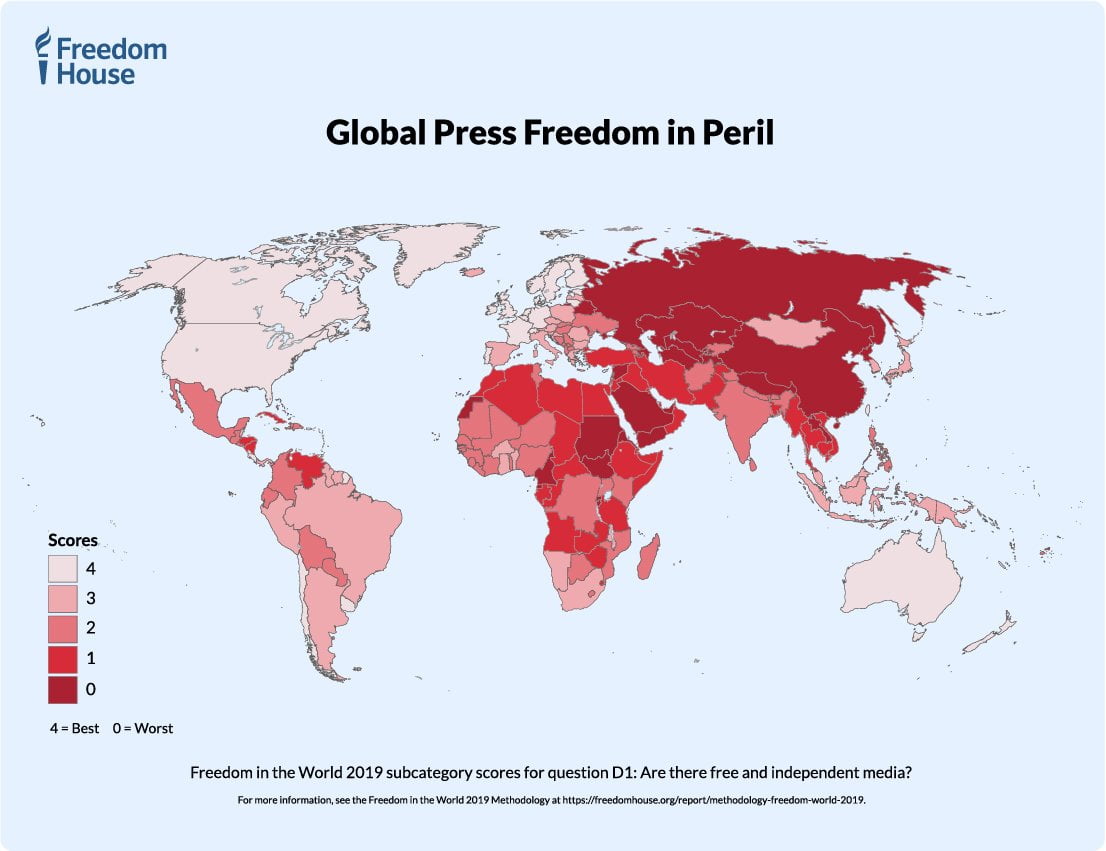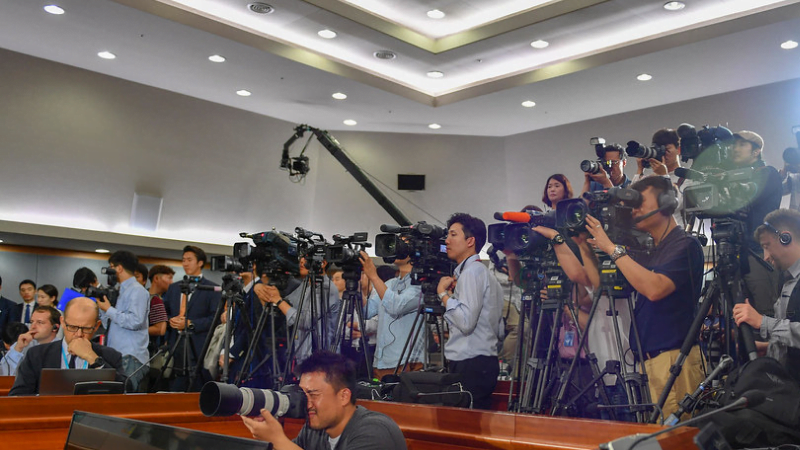Elected leaders in democratic countries have made “explicit attempts to silence critical media voices”, according to the Freedom and the Media 2019 report by US-based organisation Freedom House published on Wednesday.
The report notes a global decline in democracy that it is “most acute in Europe”, a place that was previously a “bastion of well-established freedoms”.
Malta ranks alongside India, Indonesia, Namibia and the Czech Republic in the report. On media freedom, Malta scores three out of a possible four points. The majority of EU countries have four points – the maximum amount possible.
The report states that some of the world’s most influential democracies are preventing their citizens from receiving unbiased news and information and that the erosion of press freedom is merely a symptom of a bigger problem.
The independent democracy watchdog outlined a number of recommendations for policymakers in democratic nations to help ensure the sustainability of independent media.
These include politicians and elected officials not verbally attacking the press and being swift to condemn acts of repression against journalist and media outlets.
The failure to call out attacks and even murder of journalists, sends a signal to undemocratic leaders that “assaults on the press and crimes against journalists are permissible”.

Leaders are also called on to take strong and immediate action against violations of media freedom, including the imposition of targeted sanctions on perpetrators. This measure was mentioned with specific references to instances where “authorities fail to identify and prosecute” those who attack journalists or restrict media access.
When it comes to the control of the independent media in democratic countries, common methods include financial pressure, public denunciations of honest journalists, and the practice of governments offering “proactive support to friendly outlets”.
This support often includes of State contracts, funding, or preferential access to State information. Either way, the end goal is the same; to “make the press serve those in power, rather than the public”.
It was also observed that populist leaders often present themselves as defenders against “liberal elites and ethnic minorities”, calling their loyalties into question and creating a divide. These leaders then seek to secure and increase their grip by “taming” the press to avoid any breach in their media dominance that could result in exposing corruption or debunking official narratives.
Freedom house also found that violence and harassment levied against journalists had increased in 63% of countries that experienced a decrease in freedom over the last five years.
As populist leaders are finding new ways to throttle independent journalism, global press freedom continues to suffer. #FreedomAndTheMedia https://t.co/gcb6S0aLos
— Freedom House (@freedomhouse) June 5, 2019
In the country report on Malta, released earlier this year, Malta lost points in several key areas including political rights, civil liberties and overall freedom. It now scores below most of Western Europe. Concerns were raised over corruption, media freedom and the rule of law.
Read: Malta loses points for political rights and civil liberties in Freedom House report
The Freedom House report released on Wednesday states that while the media is not always the first institution to be attacked when a country’s leadership becomes anti-democratic, it is “a strong indication that other political rights and civil liberties are in danger”.
“Assaults on media independence are frequently associated with power grabs by new or incumbent leaders, or with entrenched regimes’ attempts to crush perceived threats to their control,” the report adds.
It concludes that a free and independent media is crucial to keeping the public informed and holding leaders to account.
“Without it, citizens cannot make informed decisions about how they are ruled, and abuse of power – which is all but inevitable in any society – cannot be exposed and corrected.”












